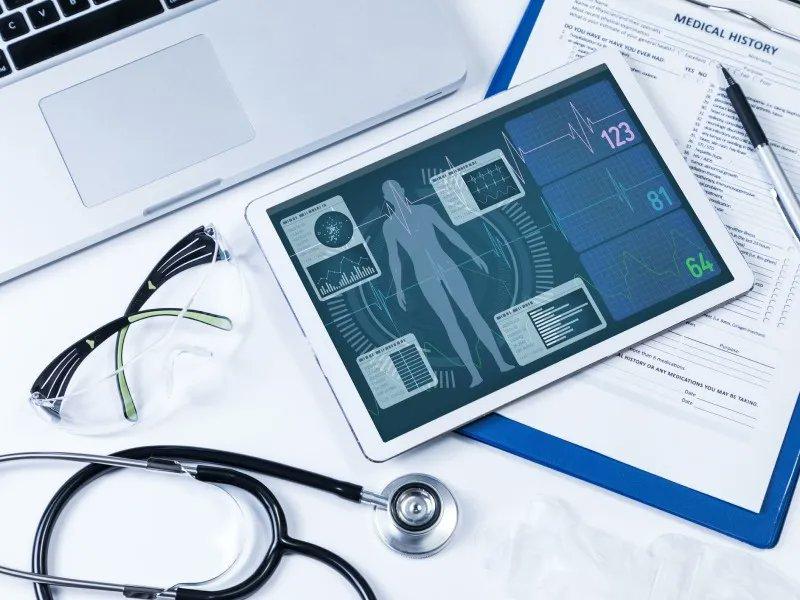The Role of Big Data in Healthcare: Improving Patient Outcomes
Introduction
The healthcare industry is undergoing a remarkable transformation, driven by Big Data in Healthcare. With the rise of Healthcare Data Analytics and the adoption of Predictive Analytics in Healthcare, providers can harness vast amounts of information to improve diagnostics, personalize treatments, and ultimately enhance patient care. The ability to collect and analyze massive datasets from diverse sources—ranging from electronic health records (EHRs) to wearable devices—has created new opportunities for improving healthcare delivery and outcomes. In this blog, we will explore how big data and analytics in healthcare are shaping the future of medicine and how big data improves patient outcomes.
1. What is Big Data in Healthcare?
Big Data in Healthcare refers to the immense volumes of structured and unstructured data generated every day from a wide array of sources such as EHRs, medical imaging, wearables, and genetic information. The use of big data analytics in healthcare helps healthcare providers make more informed decisions by identifying trends and patterns that would otherwise go unnoticed. According to a Harvard Business Review article, big data in healthcare is transforming the way medical decisions are made.
Key Characteristics of Big Data in Healthcare
- Volume: The healthcare industry produces vast amounts of data, from patient medical records to real-time data from wearable health devices.
- Variety: Data in healthcare comes from various sources, such as diagnostic tests, physician notes, and medical images.
- Velocity: Healthcare data is generated rapidly, requiring real-time analysis to provide timely insights.
- Veracity: The accuracy and reliability of data are critical for ensuring meaningful insights that can improve patient outcomes.
Sources of Big Data in Healthcare
- Electronic Health Records (EHRs): These are digital versions of patients’ medical histories, including diagnoses, treatments, and lab results, making them central to big data healthcare applications.
- Medical Imaging: High-resolution imaging like MRIs and CT scans generates large amounts of visual data essential for diagnosis.
- Wearable Devices and Sensors: Devices like fitness trackers continuously capture data on patients’ heart rates, physical activity, and sleep patterns, contributing to data analytics healthcare.
- Genomics: Genetic data, particularly in precision medicine, plays a critical role in tailoring personalized treatment plans.
2. The Importance of Healthcare Data Analytics
The sheer volume and complexity of data in healthcare require advanced analytical tools to extract actionable insights. Healthcare data analytics enables healthcare organizations to identify patterns, make predictions, and optimize care delivery. Through big data analytics in healthcare, providers can shift from reactive to proactive care models, offering better outcomes for patients.
Types of Healthcare Data Analytics
- Descriptive Analytics: This type of analytics looks at historical data to understand trends and patterns. For example, analyzing hospital admission rates can help optimize resource allocation.
- Predictive Analytics in Healthcare: Predictive analytics applies statistical algorithms to current and historical data to forecast future outcomes, such as identifying patients at risk for chronic diseases. The benefits of predictive analytics in healthcare include better disease prevention, reduced hospital readmissions, and improved resource management.
- Prescriptive Analytics: This branch of data analytics for healthcare goes beyond predictions by recommending specific actions. For instance, a prescriptive model could suggest the most effective treatment for a patient based on their medical history and genetic profile.
The Role of Predictive Analytics in Healthcare
One of the most significant applications of predictive analytics in healthcare is identifying high-risk patients before adverse health events occur. By leveraging historical patient data, providers can predict future health problems and intervene early to prevent complications.
Some notable big data healthcare applications include:
- Preventing Chronic Diseases: Predictive analytics helps identify patients at risk of chronic diseases, allowing healthcare professionals to provide preventive care.
- Reducing Hospital Readmissions: Hospitals can use predictive models to determine which patients are most likely to be readmitted, allowing for proactive interventions such as follow-up care or remote monitoring.
- Resource Optimization: Hospitals can forecast patient admissions and optimize staffing levels, ensuring that resources are allocated where they are needed most.
Through these applications, big data analytics in healthcare is not just improving efficiency but also improving patient outcomes with data.
3. How Big Data Improves Patient Outcomes
Big Data in Healthcare has the power to dramatically improve patient outcomes by enabling faster diagnostics, more effective treatment plans, and better preventive care. The ability to analyze vast amounts of patient data using healthcare data analytics ensures that providers can make informed decisions quickly, improving the quality of care.
Data-Driven Diagnostics
Traditional diagnostic processes often rely on manual interpretation and a limited set of data. However, big data analytics in healthcare allows for the integration of multiple data sources, including patient history, genetic data, imaging results, and real-time health metrics. Advanced algorithms can analyze this data to detect subtle patterns that may indicate a disease’s early onset.
For example, machine learning algorithms can scan medical imaging data such as MRIs or CT scans to detect anomalies that may not be visible to the human eye. This allows for earlier and more accurate diagnoses, particularly in cases like cancer, where early detection is critical for effective treatment. This application of big data healthcare technologies is key to improving patient outcomes with data.
Personalized Treatment Plans
One of the most significant benefits of predictive analytics in healthcare is the ability to personalize treatment plans. Rather than relying on a standardized approach, healthcare providers can use big data in healthcare to tailor treatments to each individual patient based on their unique health profile, genetic information, and lifestyle factors.
For instance, a cancer treatment plan could be personalized using genetic data to determine which chemotherapy drugs are likely to be the most effective for a specific patient. Similarly, patients with cardiovascular disease could receive treatment plans that are customized based on real-time data collected from wearable devices. This personalized approach helps reduce side effects and improve recovery rates.
Preventive Care Through Predictive Analytics
Predictive analytics in healthcare is particularly effective in preventive care. By analyzing vast datasets, healthcare providers can predict which patients are most likely to develop chronic conditions such as diabetes, hypertension, or heart disease. Early intervention through lifestyle changes, medication, or closer monitoring can prevent the condition from progressing, significantly improving patient outcomes with data.
For example, healthcare providers can use predictive models to identify patients who are at high risk of developing heart disease. By intervening early, healthcare professionals can recommend lifestyle modifications and regular check-ups to prevent heart attacks or other complications.
4. The Future of Big Data in Healthcare: Trends and Opportunities
The future of big data in healthcare is promising, with emerging technologies like artificial intelligence (AI), genomics, and wearable tech playing crucial roles in shaping the next generation of healthcare delivery. The potential for big data analytics in the healthcare industry to provide real-time, data-driven insights will continue to grow as technology evolves, offering even more personalized and proactive care solutions.
Artificial Intelligence and Machine Learning
AI and machine learning are revolutionizing the healthcare landscape by processing vast datasets more efficiently than traditional methods. These technologies enable healthcare providers to analyze patient data, clinical trial results, and medical literature in real-time to make more informed decisions. Explore the future of AI in healthcare in this McKinsey report on healthcare analytics.
By integrating AI with big data healthcare applications, hospitals and clinics can diagnose diseases faster, recommend the most effective treatments, and predict potential complications before they occur.
Wearable Technology and Real-Time Monitoring
Wearables like smartwatches and fitness trackers are continuously generating data that can be analyzed to monitor a patient’s health in real-time. By integrating wearable data with healthcare data platforms, healthcare professionals can provide ongoing, personalized care. This continuous monitoring can also be used for early detection of conditions, such as abnormal heart rhythms, allowing for timely interventions.
Key Takeaways
- Big data in healthcare is driving a new era of personalized, data-driven patient care, offering better diagnostics, preventive care, and treatment options.
- Healthcare data analytics helps healthcare providers analyze massive datasets to detect patterns, optimize resource use, and improve patient outcomes.
- Predictive analytics in healthcare enables proactive care by identifying at-risk patients and predicting future health issues, allowing for timely interventions.
- The future of big data analytics in healthcare lies in integrating AI, wearable tech, and genomics to offer more personalized, real-time healthcare solutions.
Conclusion
The integration of Big Data in Healthcare is revolutionizing how healthcare is delivered, with Healthcare Data Analytics and Predictive Analytics in Healthcare leading the charge. Through the use of big data analytics in the healthcare industry, providers can offer more personalized, efficient, and proactive care, ultimately improving patient outcomes with data. As AI, wearables, and genomics continue to evolve, the potential for big data healthcare applications will only increase, making healthcare more precise, efficient, and patient-centered. The future of healthcare is here, and it’s powered by big data.

